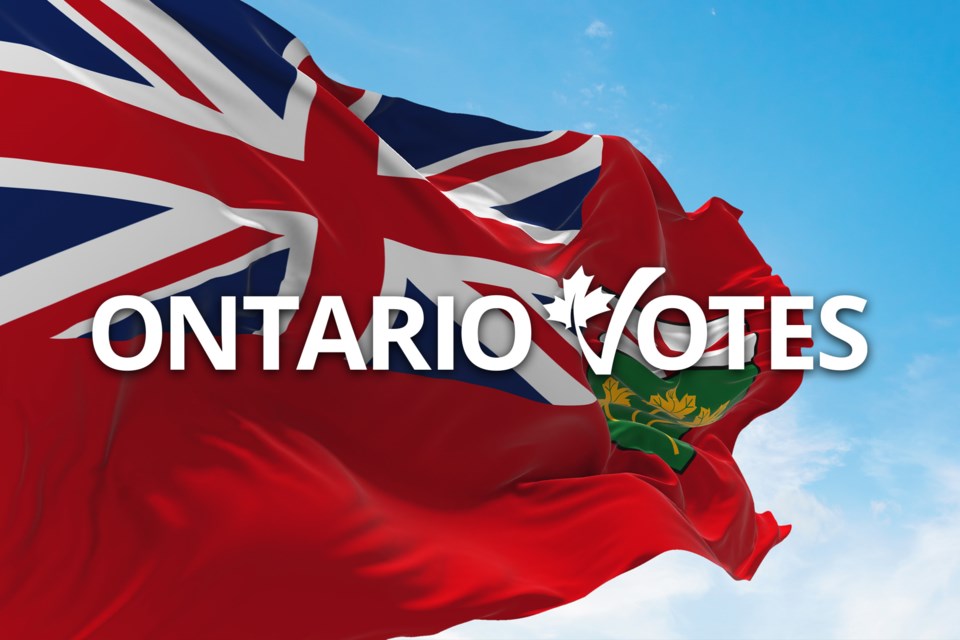The spectre of health-care privatization has been raised on the campaign trail, with people taking to social media in recent days to complain about paying for cancer screening tests.
The idea that the Doug Ford Progressive Conservative government has expanded the number of things not covered by the Ontario Health Insurance Plan has been spreading like wildfire.
“There have been no changes to OHIP billing,” a party spokesperson clarified by emailed correspondence to Sudbury.com. “Doug Ford and the Ontario PCs have invested more in public health care than any other government in Ontario’s history.”
A request for interviews with local Progressive Conservative candidates Marc Despatie (Sudbury) and Randy Hazlett (Nickel Belt) was ignored, as such requests have been throughout the election season.
In a media release issued in response to Sudbury.com’s inquiry, LifeLabs affirmed, “There have not been any laboratory tests de-listed (i.e. removed with no replacement test) in the last five years under the Ontario Health Insurance Plan Schedule of Benefits for Laboratory Services.”
Blood tests that screen for prostate cancer have been singled out on social media, which have come at a cost under both the Progressive Conservative government and the previous Liberal government.
Charging for medical services such as this was a mistake then and it’s a mistake now, Nickel Belt Liberal candidate Gilles Proulx told Sudbury.com.
“You learn from your mistakes and you come back and rectify them and move on,” he said, adding that charging for medical services is “totally against my personal values.”
“My point of view is that shouldn’t have happened at all. … I don’t know why we would do it, but we have a new leader, a new platform and a new team, so I would advocate for that to be back on OHIP.”
Although less than $100 for a cancer-screening blood test might not be a significant expense for most people, Proulx said it can be prohibitively expensive for those who are struggling to put food on the table and pay for rent.
“You’ve got to walk in somebody’s shoes before you understand.”
Sudbury Green candidate David Robinson drew from his economist background in a conversation with Sudbury.com. He said that although he understands why some people would advocate for certain costs to be attached to health-care services, he neither supports it nor believes the majority of Canadians do.
“Canadians want a more comprehensive health-care system that covers more of those costs, but there’s a minority of Canadians who are very loud about paying for it,” he said.
While there’s an argument to be made for certain costs, such as deductibles, in dissuading people from over-using services, he said that it results in people falling through the cracks.
When things like pre-cancer screening come at a cost, those who can’t afford it will forego services and more people will die as a result.
“That’s just the mathematics of it,” Robinson said. “You can’t get around it.”
Nickel Belt NDP candidate France Gélinas said that she has been hearing from people lately about paying between $55 and $95 for prostate cancer-screening blood tests from LifeLabs.
“A lot of them don’t understand, why do they have to pay for something that could save their lives? Isn’t that what Medicare is all about.”
The biggest push comes every November – a month that has been nicknamed “Movember,” during which men grow mustaches and raise awareness and funds for cancers that affect men.
“The campaigns work,” she said. “It motivates a whole lot of men to go out and get tested.”
The concern is that not everybody can afford it, leading to unequal access to health-care services.
“It started with the Liberals,” she said, adding that hospital budgets were frozen during a time in which costs increased, resulting in staff being laid off and costs cut wherever possible.
Although the private sector isn’t allowed to charge for medical services that are covered under Medicare, they “always found ways to charge fees,” Gélinas said, pointing to certain therapies and meetings with nutritionists as examples.
“There’s always a way to get a fee in there, and this started under the Liberals but it continued full stream with the Conservatives,” she said. “Care should be based on needs, not on ability to pay.”
The shift toward privatization appears to have been “done by design,” Gélinas said.
“If enough people are not happy with the care they can receive in our publicly funded, publicly delivered system, then more and more people say yes to privatization simply because they want care.”
Rather than offer better service for those who can afford it, she said the government should be pushing for improved services for everyone.
“At the end of the day, privatization … just brings money away from health care and into the pockets of private investors.”
Tyler Clarke covers city hall and political affairs for Sudbury.com.



